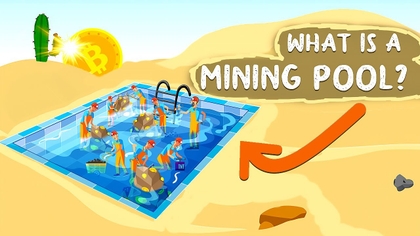Developers on the Solana
$212.12
network have proposed a new system to address ongoing scalability issues caused by the growing number of users.
The primary goal of this system is to simplify how the network handles billions of accounts by creating an efficient method to update account information without recalculating everything.
The January 6 proposal, known as SIMD-215, outlines a “lattice-based homomorphic hashing function” designed to improve how the network tracks and verifies accounts.
Did you know?
Subscribe – We publish new crypto explainer videos every week!
What is a Crypto Mining Pool? Is it Worth it? (Beginner-Friendly)

As of now, Solana needs to reprocess the entire “state” of its accounts regularly, which becomes increasingly time-consuming as the network expands.
Anatoly Yakovenko, co-founder of Solana Labs, highlighted this issue, called the “state growth problem”, in a May 2024 discussion on X.
He explained that every new account must prove it is unique, which requires nodes to maintain a complete list of all accounts. While this ensures accuracy, it places a heavy burden on the system.
The new system aims to solve this by enabling instant verification and focusing only on accounts that have been updated, rather than rechecking the entire network. This approach would reduce the load on nodes and make operations more efficient.
Crypto research firm Republik Labs compared the proposal’s outcome to housecleaning in a January 7 post on X:
Think of it like cleaning a house. Instead of scrubbing every single room every day, you only tidy up the spaces that got messy. This saves time and effort while keeping everything in order.
As Solana proposes a new system to solve scalability issues, two Solana projects plan to distribute token airdrops for qualified users. How much will users receive? Read the full story.
Having completed a Master’s degree in Economics, Politics, and Cultures of the East Asia region, Aaron has written scientific papers analyzing the differences between Western and Collective forms of capitalism in the post-World War II era.With close to a decade of experience in the FinTech industry, Aaron understands all of the biggest issues and struggles that crypto enthusiasts face. He’s a passionate analyst who is concerned with data-driven and fact-based content, as well as that which speaks to both Web3 natives and industry newcomers.Aaron is the go-to person for everything and anything related to digital currencies. With a huge passion for blockchain & Web3 education, Aaron strives to transform the space as we know it, and make it more approachable to complete beginners.Aaron has been quoted by multiple established outlets, and is a published author himself. Even during his free time, he enjoys researching the market trends, and looking for the next supernova.




